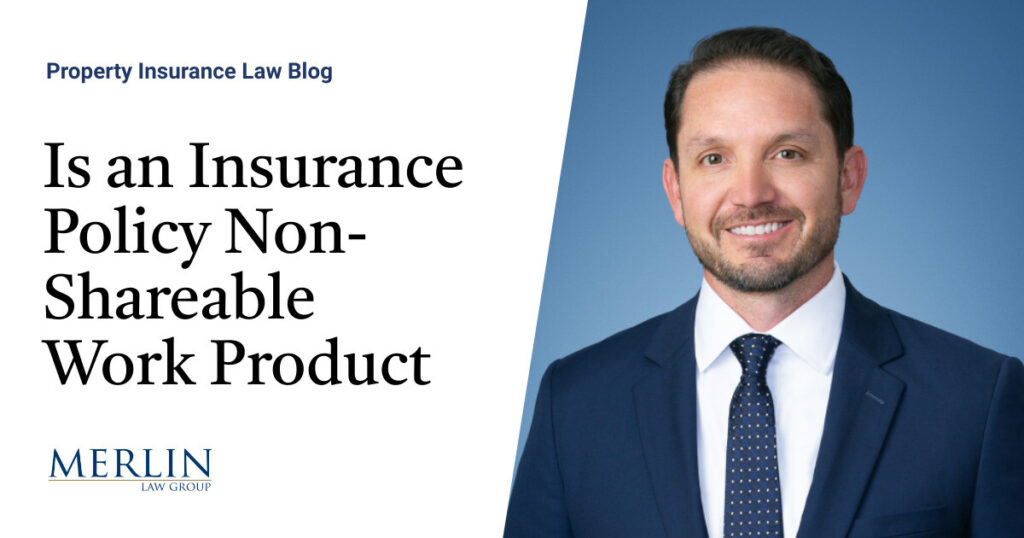Is an Insurance Policy Non-Shareable Work Product?

It is common practice for insurance attorneys to send document requests to the insurance company during the initial phases of client representation. Last week, our office sent a document request to a nationally known insurance company, including a request for a certified copy of the policy. The seasoned handling adjuster, whose email signature indicated he had an Associate in Claims (AIC) insurance designation, responded that the carrier would not provide a copy of the policy because it was “work product” and could not be shared. The adjuster instead directed us back to our client to provide us with a copy of the policy. While I have encountered plenty of carrier representatives who made obtaining a copy of the policy difficult, this was the first time work product doctrine was cited to prevent production.
What is “work product”?
Work product is a legal concept meant to exempt from discovery documents and tangible things prepared in anticipation of litigation or for trial.[1] Its purpose is to give attorneys a certain degree of privacy, free from unnecessary intrusion by opposing parties and their counsel. A document is protected by the work product privilege if it was prepared in anticipation of litigation by another party or that party’s representative and was intended to remain confidential. Otherwise, work product doctrine does not apply to documents prepared during the ordinary and routine course of business operations.
Clearly, an insurance policy drafted in the normal course of business is not a document prepared in anticipation of litigation or intended to remain confidential.
In this case, the handling adjuster received a reply from our office quickly dispelling his theory that an insurance policy is non-shareable work product. It certainly did not help his work product argument that the state’s insurance code explicitly requires the insurer to deliver a copy of the policy and endorsements upon the insured’s request. The adjuster later recanted and agreed to arrange for the production of the certified policy.
As an insurance industry professional, I have made similar document requests for years. Unfortunately, insurance carrier representatives often obstruct or delay these simple requests by sending documents that are turned upside down, pages that are out of order, shrunk down to the point of being illegible, or flat refusing to produce. Another common tactic to delay the claim review process is adjusters’ insistence on providing paper copies via postal delivery instead of electronic copies when specifically requested.
When insurance company representatives pull stunts like this, it undermines the trust and transparency essential to the insurer-insured relationship. This is also important why, as employers, it is vital for insurance companies to provide their representatives adequate training on good faith claim handling as well as the rules and regulations for the state.
[1] See e.g., Villarreal v. United Fire & Cas. Co., 873 N.W.2d 714, 727 (Iowa 2016) (Internal citations omitted and holding that in the context of first-party bad-faith insurance litigation, materials that were drafted in the ordinary course of business are not protected by the work product doctrine except for those containing documents specifically prepared in anticipation of litigation).







